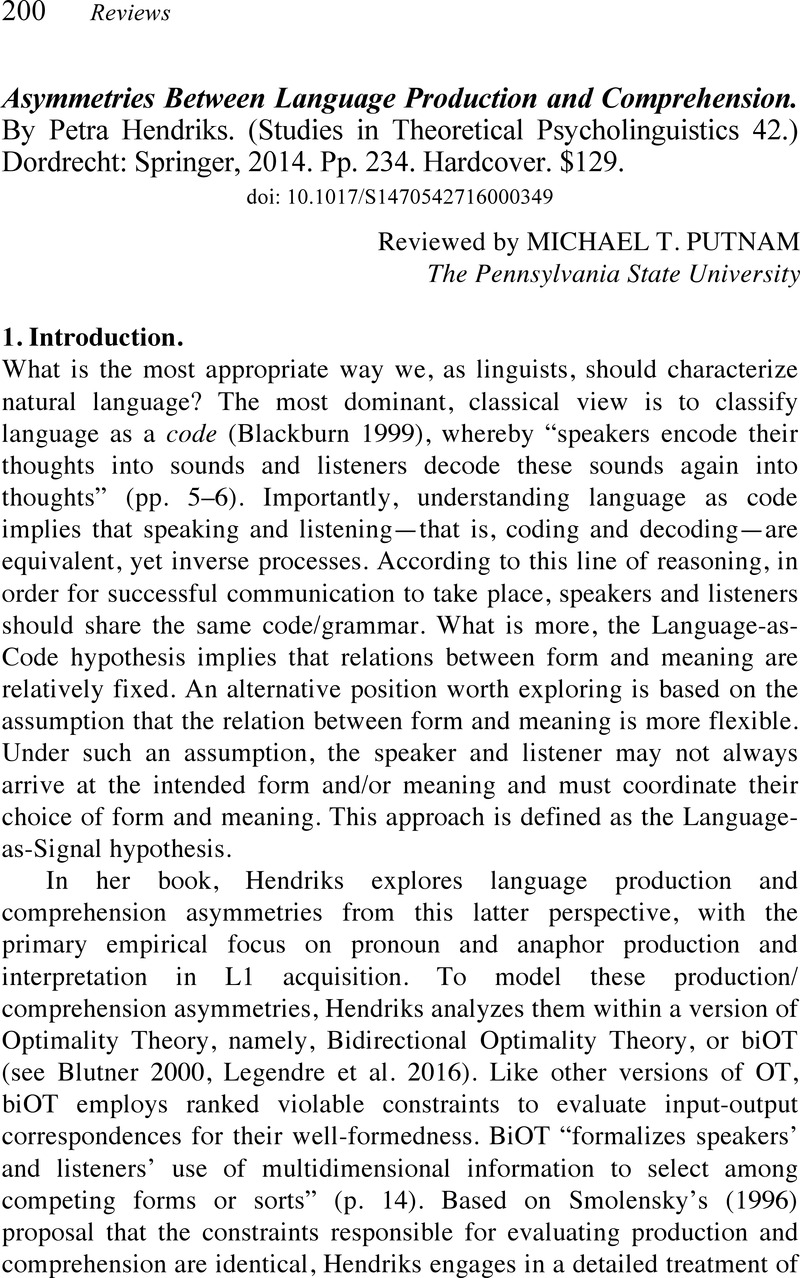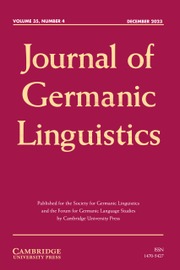No CrossRef data available.
Article contents
REVIEWS - Asymmetries Between Language Production and Comprehension By Petra Hendriks. (Studies in Theoretical Psycholinguistics 42.) Dordrecht: Springer, 2014 Pp. 234. Hardcover. $129.
Review products
Asymmetries Between Language Production and Comprehension By Petra Hendriks. (Studies in Theoretical Psycholinguistics 42.) Dordrecht: Springer, 2014 Pp. 234. Hardcover. $129.
Published online by Cambridge University Press: 10 May 2017
Abstract
An abstract is not available for this content so a preview has been provided. Please use the Get access link above for information on how to access this content.

- Type
- Reviews
- Information
- Copyright
- Copyright © Society for Germanic Linguistics 2017
References
REFERENCES
Anderson, John R.
2007. How can the human mind occur in the physical world?
Oxford: Oxford University Press.Google Scholar
Benz, Anton, & Jason, Mattausch (eds.). 2011. Bidirectional Optimality Theory. (Linguistics Today 180). Amsterdam: John Benjamins.Google Scholar
Blackburn, Perry L.
1999. The code model of communication: A powerful metaphor in linguistic metatheory. Arlington, TX: University of Texas–Arlington dissertation.Google Scholar
Blutner, Reinhard. 2000. Some aspects of optimality in natural language interpretation. Journal of Semantics
17. 189–216.CrossRefGoogle Scholar
Hendriks, Petra, & Jacolien, van Rij. 2011. Language acquisition and language change in bidirectional Optimality Theory. Benz & Mattausch 2011, 97–124.Google Scholar
Hendriks, Petra, Charlotte, Koster, & John, C. J. Hoeks. 2014. Referential choice across the lifespan: Why children and elderly adults produce ambiguous pronouns. Language, Cognition and Neuroscience
29. 391–407.CrossRefGoogle ScholarPubMed
Legendre, Géraldine, Michael, T. Putnam, Henriëtte, de Swart, & Erin, Zaroukian (eds.). 2016. Optimality-theoretic syntax, semantics, and pragmatics: From uni- to bidirectional optimization. Oxford: Oxford University Press.CrossRefGoogle Scholar
Smolensky, Paul. 1996. On the comprehension/production dilemma in child language. Linguistic Inquiry
27. 720–731.Google Scholar


